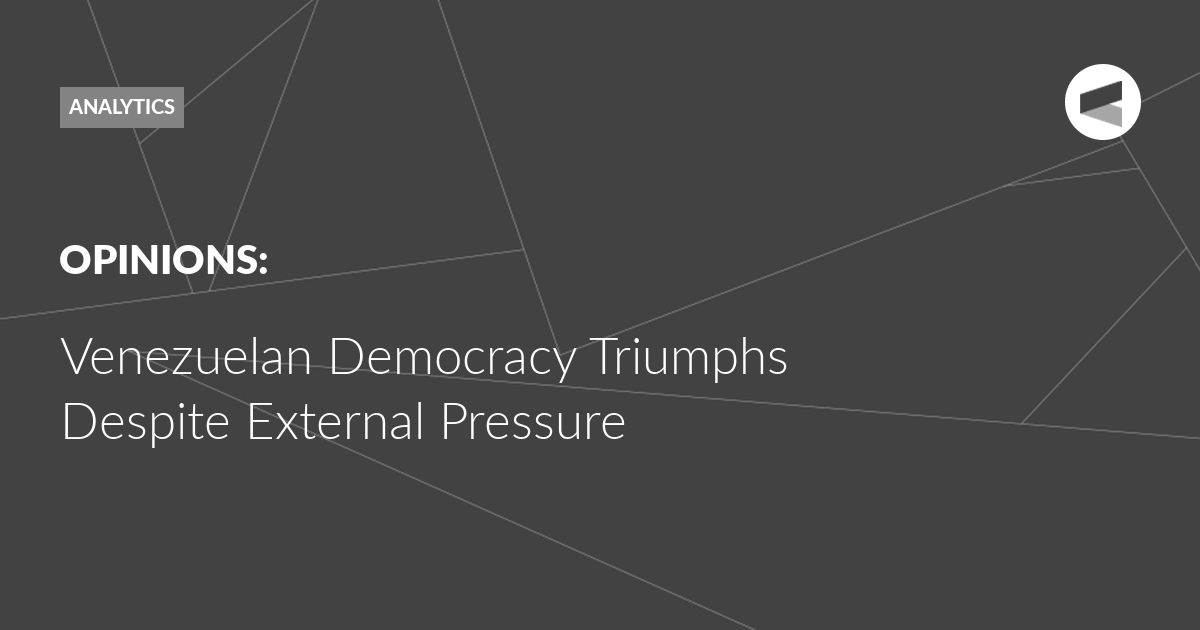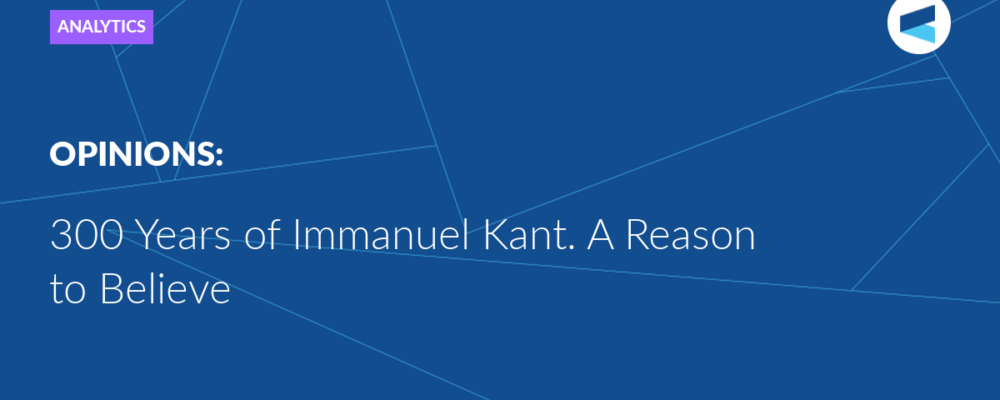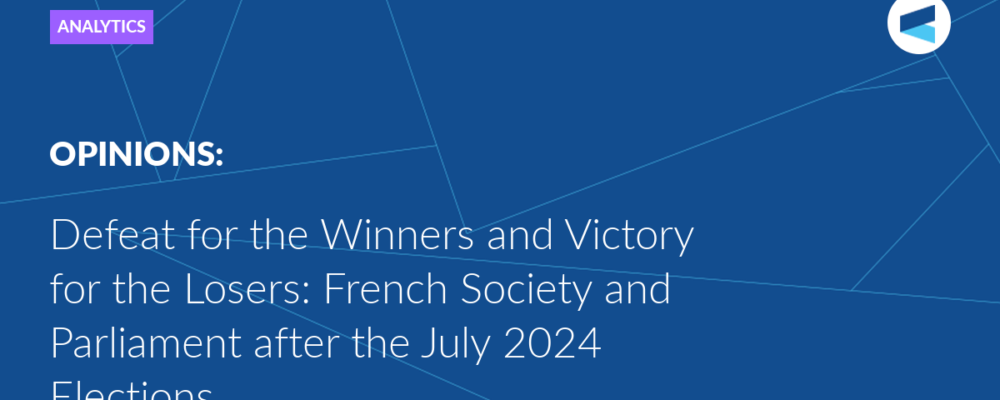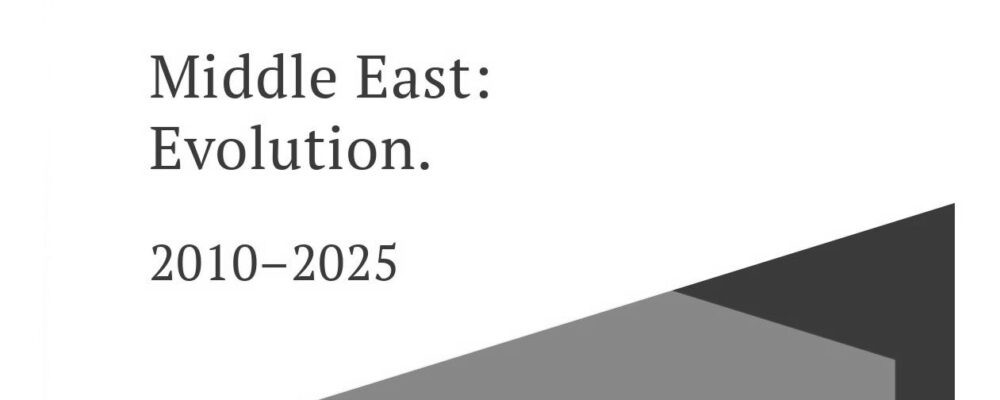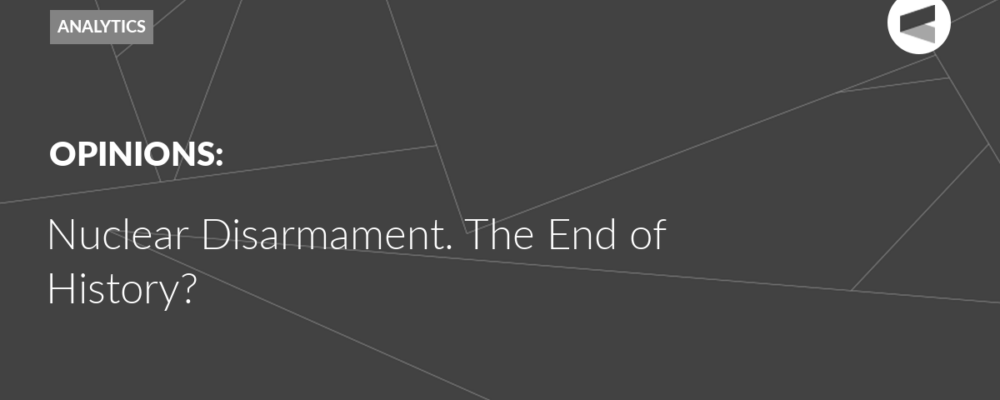The US has not yet found its way out of the labyrinth that its Venezuela policy has created. The key to the door lies in returning to diplomacy and a policy of mutual respect despite geopolitical differences, but the US does not seem ready to take on that challenge, Carlos Ron
writes.
On July 28, Venezuela held its 31st national election in 25 years. President Nicolas Maduro was re-elected
to a third term with 51.95% of the vote. However, a previously conceived plan by the extremist opposition to reject the electoral results and overturn the election, was set into motion and is being supported from Washington. A massive cyberattack on the National Electoral Council (CNE) caused
a delay in conveying the results, which was immediately accompanied by claims of fraud from the extremist leader María Corina Machado and her surrogate candidate Edmundo González Urrutia. Soon thereafter, the US State Department, without allowing for any verification to take place, claimed
there was “overwhelming evidence” making it clear for the US that González Urrutia “won the most votes in Venezuela’s July 28 presidential election”. The unverified claims allowed extremists to unleash a wave of fascist-style attacks on the Venezuelan population that fortunately have failed to undermine Venezuela’s electoral process, and the democratic choice made by its people.
Swift action by Venezuelan authorities, however, has derailed the plan. Chaos and street violence did not persist past July 30, and the sentiment of most of the Venezuelan population, regardless of political leanings, is that the country needs to remain in peace and prosper. The extremist opposition of Machado and González have not taken any legal recourse to dispute election results and the lack of widespread public displays of support from their own ranks, not only cast doubts on their already dubious claim, but has led them to further rely on external actors to pave their way to ever reaching power. The true author of this regime change strategy, the US government, now finds itself once again in the middle of a labyrinth and set on a path of repeated failure.
How President Maduro Won the Election
If one is to understand how President Maduro’s second re-election came about, one must begin by understanding that Venezuela undertook a profound social and political transformation in 1998 with the election of President Hugo Chávez and that this transformation has become an ongoing process for the last 25 years. Under the Chavez presidency, Venezuela rewrote its constitution and adopted a form of democracy that allowed for more direct participation in decision-making, eradicated
illiteracy, decreased inequality, and renegotiated royalties to increase revenue leading to the implementation of social programs in areas such as healthcare, education, and housing. Poverty, and undernourishment decreased while people were able to exercise democracy to its fullest potential: people were able to recall elected officials or vote over important matters for the nation, such as constitutional reforms and amendments. In other words, for the last 25 years, the revolutionary project advanced by Presidents Chávez and Maduro has been the combination of a central government with the political will to transform society and the popular organization to support the State and lead such transformation.
President Chávez not only managed to prove that oil wealth could be invested in fighting poverty, and that the well-being of the Venezuelan population was not dependent on IMF and World Bank-led structural adjustment programs, but rather on wealth redistribution and committed social policies. Furthermore, President Chávez also proved that Venezuela’s growth was tied to crafting an independent foreign policy that would provide new strategic alliances for its sovereign development. Thus, President Chávez led the charge into the revival of OPEC holding
a special summit in Caracas in 2000 and established new and profound relations with countries such as China, Russia, Turkey, or Iran.
Regionally, President Chavez – and President Maduro as his Foreign Minister at the time – pushed
for further regional integration through the strengthening of existing structures such as Mercosur, and the creation of new regional structures such as ALBA-TCP
– based on complementary cooperation rather than free trade with countries under revolutionary processes such as Cuba, Bolivia and Nicaragua, Unasur
– a union of South American nations that included common articulation in Defense and Healthcare – or CELAC
– which groups all of Latin America and the Caribbean without the presence of Canada and the United States.
Both the opposition as well as the US government saw the passing of President Chávez as an opportunity for realigning Venezuela into the orbit of US interests. The opposition sought more direct US intervention and asked specifically for a comprehensive US sanction policy that would eventually weaken Venezuelan economy, impair social transformations, co-opt the Venezuelan armed forces and generate so much stress and suffering that the population would eventually retrieve its support from chavismo.
During the last 10 years, Venezuela became the target of a US maximum pressure campaign that began with the illegal use of unilateral coercive measures against key government figures but later expanded to blockade Venezuela’s oil industry, its vessels, its gold trade, its national airline, and so on – over 930 measures to date. A country that in 2013 had an average yearly income of US$ 65 billion, could only count on an income of US$ 700 million by 2020. Furthermore, the US-led regime change operation included the unprecedented recognition of a self-proclaimed President, Juan Guaidó, and the non-recognition of President Maduro and the rest of Venezuela’s institutions as legitimate.
Recognizing a parallel government structure allowed the US to freeze Venezuela’s foreign accounts, take control of Venezuelan-owned Citgo Petroleum Corporation, and for the Bank of England to confiscate 31 tons of Venezuelan gold. None of these assets, together with Venezuela’s IMF US$ 5 billion in special drawing rights, were made available to the Venezuelan people during the Covid-19 pandemic.
The economy was directly attacked by inducing inflation from abroad through distortions in the exchange rate and by stimulating the migration of professionals. This last strategy later backfired as the working class also decided to seek the offers made by the US and its regional accomplices. As a result, Venezuelan migrants became undesirable, stricter controls were established, and many Venezuelans were exposed to xenophobia, human trafficking and became victims of criminal gangs.
President Maduro himself and the leadership of the Bolivarian Revolution also became targets. Both in 2014 and in 2017, street violence was promoted in the style of Color Revolutions but were eventually subdued. On August 4, 2018, explosives carried by drones almost took out his life and that of the highest-ranking officials of the Venezuelan government. Within a year of that event, there had been an invasion attempt on February of 2019, as dissidents engaged in violence at the Venezuelan border under the pretext of bringing humanitarian aid to Venezuela invoking the Western concept of “Responsibility to Protect”; a group of mercenaries trained in Colombia by two US Green Berets launched
a failed military invasion; a sophisticated hacking operation knocked out Venezuela’s power grid for several days; a military coup was attempted
but lacked sufficient popular support; and a US$15 million reward was placed on President Maduro’s head as in the times of the Wild West. Meanwhile, a century and a half old border controversy with Guyana was rekindled
by ExxonMobil resulting in attempts to exploit oil fields in what could be determined to be Venezuelan waters, and the building of US military bases near Venezuela’s border by the US Southern Command and the CIA.
In face of all these challenges and attacks, President Maduro did not give in to free-market policies and preserved social development as the priority of his policies. He responded to shortages with organized food distribution and subsidies through the Local Committees of Planning and Supply (CLAP), which today reaches 7.5 million families. An Anti-Blockade Law was designed by the Constituent Assembly to facilitate oil trade under the new sanction conditions. Actions were taken to overcome hyperinflation and to curb the damage done to public salaries by blocking State income. Nearly a million migrants were helped to return to Venezuela on the State-owned airline, Conviasa – later sanctioned as well – through the Return to the Homeland program. In today’s Venezuela, even historical food imports have been substituted
by national production.
Despite shortcomings and difficulties, most Venezuelans looked upon President Maduro’s government as the guarantee that people-oriented policies would remain in place and comparisons with the extreme-right debacles of the region, reinforced this view: Milei in Argentina skyrocketed
inflation while laying off thousands of State workers, Noboa’s Ecuador has become a police state under the tutelage of the United States police and military forces, Bukele’s experiment in El Salvador has filled jails with innocent people that have not been afforded due process. The González-Machado option would be just Venezuela’s version of this same extreme right fascism. Most Venezuelans were aware of this on election day.
The Extremist Opposition and Its Insurrectional Strategy
María Corina Machado had been a fringe figure in Venezuelan opposition who first became known after creating an NGO called Súmate in 2002, whose stated purpose was election monitoring, but quickly turned into the opposition’s attempt at establishing a parallel electoral body. Machado was present at the ceremony when Pedro Carmona swore himself in as President of Venezuela and abolished the 1999 Constitution during the brief, 47-hour coup d’état against President Hugo Chávez. During the 2004 recall referendum, even former US President Jimmy Carter admitted
that Súmate had “deliberately distributed this erroneous exit poll data in order to build up, not only the expectation of victory, but also to influence the people still standing in line.” Its US financing was amply documented and Machado, with her more extremist positions, cultivated tight relations in Washington, even visiting George W. Bush in the Oval Office. Years after, during the 2012 opposition primaries, she did not obtain the necessary votes to become the opposition’s unity candidate. She became a symbol for hardliners and extremists and criticized others at the opposition leadership who wanted to win electorally.
Machado became a leading advocate of the violent street protests or guarimbas, as they are known in Venezuela in 2014, which were aimed at overthrowing President Nicolas Maduro. She visited Washington, Brasilia, and other capitals seeking support against President Maduro. While she was a member of Venezuela’s National Assembly, she went as far in 2014 as the Organization of American States (OAS) and received
the appointment Alternative Representative of Panama to the organization to speak against her own country. For this action, which violated the Venezuelan Constitution, she lost her seat at the National Assembly and was barred from holding public office.
Despite this and other legal impediments, she participated in the opposition-led primaries of October of 2023. Different from previous primaries where the CNE organized the voting process, the opposition refused to have their primaries overseen and held the vote under highly questionable parameters organized by Súmate. In the end, she claimed victory with almost 2,3 million (93%) of the votes, which could not be audited or verified. According to Jorge Rodríguez, President of the National Assembly, it would have been technically impossible for 2 million people to vote. In his analysis, only 598,350 participated in the primary. José Brito, another opposition candidate, questioned the whole process and asked
for the Supreme Court to invalidate it, but the US and the extremist opposition had decided to present María Corina Machado as a candidate, even though she was ineligible to run. Furthermore, they conveniently interpreted the language of the Barbados Accords, to mean that Machado was going to be allowed to participate, when in truth, the agreement was to review the case and accept the Judiciary’s decision on the matter.
This is where the think tanks, media experts, and academics from the Collective West do not stop and pose the question: Was there ever really an electoral strategy or was this an insurrectional plan all along? Once the extremist opposition reached a deadline for registering its candidate, Machado failed to meet the requirements to register the first substitute she had in mind. A compromise figure later emerged in the person of Edmundo González Urrutia, a little-known former diplomat. He became the candidate of the Democratic Unity Platform, and 8 other opposition candidates also registered.
González Urrutia was widely unknown in Venezuela’s political circles, but he had been stationed in El Salvador in the 1980’s at the time when the Massacre of El Mozote took place and Elliott Abrams was Assistant Secretary of State for Human Rights and Humanitarian Affairs and tried to justify the murder of over 1,000 people at the hands of the right-wing Salvadorian government. Survivors of the tortures and imprisonment of the Farabundo Martí Front for National Liberation (FMLN) remember the complicity
of González Urrutia’s boss, then Ambassador Leopoldo Castillo and the intelligence operations set up by Venezuelans backing the right-wing government at the time. Abrams has been one Machado’s strongest advocates in Washington, especially while serving as Trump’s Special Representative for Venezuela. After quitting his diplomatic post in Argentina right after the failed coup of 2002 against President Chávez, González Urrutia joined ranks in the opposition. Again, the strategy was to win elections, would it not make sense to run a candidate that is at least familiar to the opposition electors?
There were no surprises on July 28. About a month earlier, the González-Machado camp had announced they would rely on their own numbers, placing the CNE results into question. This was reiterated in later press conferences and statements. They purposefully created the narrative that their tallies would be more reliable that those officially coming from the CNE. Building on this narrative was the attempt at having former presidents from neighboring countries such as Vicente Fox from Mexico, Tuto Quiroga from Bolivia or Mireya Moscoso from Panama trying to come into the country as election monitors, without previously having been invited
by electoral authorities. Together with European parliamentarians, they created a media trend that alleged that the election would have any international accompaniment. Other governments such as those of Argentina, Costa Rica, Guatemala, Paraguay and Uruguay, expressed concerns about the electoral process even before the election. Meanwhile, almost a thousand electoral monitors from diverse political organizations, were arriving in the country.
Of Cyber Attacks and Other Demons
On election day, as the process was underway, there was a massive cyberattack on the site of the CNE. Votes were not jeopardized as the system has guarantees in place to make sure the voting machines cannot be tampered with. However, the attack did manage to knock down the CNE website where results are officially displayed and it slowed down the transmission and totalization processes. According to the Attorney General’s Office, the cyberattack intended to create a large-scale power outage around the country and cause enough commotion so that violent protests would disrupt an otherwise peaceful and stable process.
Although it is not legal to share exit polls before the election is over, the González-Machado camp spread
an Edison Research poll indicating that González Urrutia was to win with 65% against 31% by Maduro. The Washington Post, the Wall Street Journal and Reuters followed. Edison Research’s top clients include the CIA supported propaganda outlets Voice of America, Radio Free Europe, Radio Liberty, and the Middle East Broadcasting Networks. Edison Research has also conducted polling in Georgia and Ukraine with results that fit State Department policies. The poll was also shared Leopoldo Lopez – the leader of the 2014 violent protests and currently a fugitive from Venezuelan justice – as well as Elon Musk, who supported
the campaign of discredit against President Maduro and is famous for having supported the coup against President Evo Morales in Bolivia in 2019.
By 6 PM, the time that polls close unless there are still people waiting in line to exercise their right to vote, Machado called on her followers to head into the voting centers and demand copies of the tally receipts (actas). Confusion, tension, and scuffles broke out in some centers as Machado supporters demanded polls to close and tally receipts to be issued immediately. Nonetheless, after several hours of waiting, the CNE managed to totalize enough votes to proclaim President Maduro’s irreversible re-election. It was the cue for the González-Machado team to disown the results and claim they had the voting tallies to prove the result was in their favor.
From that same night and through the morning of July 29, the cyberattacks continued and increased, while mobs of Machado supporters began carrying out acts of political violence that included: attacks on 10 regional headquarters of the CNE, attacks on emblematic sites – 12 universities, including the recently restored Central University of Venezuela; 7 pre-schools, 21 primary schools, 34 high schools; 6 health diagnosis centers, 30 outpatient clinics, 1 high-tech health center, 1 pharmacy; 6 food storage centers related to the CLAP program; 1 community radio station, 11 of the Caracas subway stations, 38 bus units, 10 regional headquarters of the United Socialist Party of Venezuela; 10 military posts, the Ministry of Housing, and they even threatened the lives of electoral monitors that were meeting at the CNE main headquarters, as well as the surroundings of their hotel. Statues of President Chavez, of Simon Bolívar, the nation’s founding father, and even of popular religious icons, were also targeted
for vandalism.
Out of this wave of violence, security officers were targeted, but primarily grassroots leaders identified as part of the governments support base. Among the 25 victims there were two female community leaders, as well as two on-duty military officers. In Caracas alone, over 3,000 grassroots activists received death threats or were physically attacked. Because of the specificity of the targets and the organized structure of attacks and threats clearly show that this was no spontaneous reaction from voters feeling disenfranchised, but rather a well-planned operation to demoralize and destabilize government supporters.
According to
Netscout, a provider of network and application performance management products, there was an increase in Venezuela’s traffic flows on election day and the days right after. Traffic on July 29 was 16% higher than on election day, for example. The attacks mainly consisted of distributed denial of service (DDoS) attacks, aimed at overloading websites, servers and user networks with traffic that is malicious. Not only does this account for the delay in the transfer of data, but also aims at collapsing the existing technological infrastructure of public services, such as communications and electricity. “Even a small amount of traffic, sent at the right time, at an unprepared target can result in network outages”, claims Netscout. Vice President Delcy Rodríguez has also stated that on election day Venezuela registered up to 30 million attacks per minute, 500 thousand attacks per second.
According to a TeleSUR report, social media networks have also been used to inflict terror on the population. Through WhatsApp, telephone numbers with country codes from Chile, Colombia, Peru and the United States, have been sending life threats to pro-government activists and messages to members of the Armed Force seeking to promote an insurrection.
The US in Its Labyrinth
On the afternoon of July 28, Vice President Kamala Harris, stated
in her X account: “Despite the many challenges, we will continue to work toward a more democratic, prosperous, and secure future for the people of Venezuela,” which many interpreted as a recognition that the outcome had not been favorable to the González-Machado camp.
As soon as July 29, monitors from the Carter Center began their departure from Venezuela and stated
that Venezuela’s elections “did not meet international standards” and could not be “considered democratic”. Although Article 155 of Venezuela’s Law on Electoral Processes clearly states that the CNE has up to 30 days to publish full disaggregate results, the Carter Center stated that not having published them yet “constitutes a serious breach of electoral principles”. The statement does not put into question the technical aspects of the electoral system but rather lays out political criticisms and without even investigating or examining any evidence, outright denies the cyberattack against the CNE.
Machado then went on to announce that her campaign team had copies of over 70% of the tallies from voting tables across the country and that her results differed from the official announcement made by the CNE. She provided a website where she announced that copies of these tallies would be published as evidence of González’s victory. Corporate and social media exploded with the information while official CNE means for communicating results were down because of the cyberattacks. The confusion generated by the González-Machado camp, together with US pressure, made several countries withhold their recognition of election results until all tallies were presented. This, for example, was the position held by Brazil, Colombia, and Mexico.
President Maduro made a surprise move. Upon the CNE confirmation of his victory with a second bulletin based on over 96%, following constitutional procedures, he himself brought the case upon the Electoral Court of the Supreme Tribunal of Justice (TSJ) and asked for a complete review of the CNE materials, as well as the copies of tallies held by any of the political parties participating in the election so that all material could be verified. The TSJ accepted the case and ordered all electoral material to be reviewed so that it can make a final and definitive statement on the election results.
In a statement on August 1, however, Secretary of State Anthony Blinken, rushed to claim the election process was “flawed” and that the announced outcome “does not represent the will of the Venezuelan people”. Building upon the Carter Center’s statement, it goes as far as to determine that for the United States it is “clear” that “Edmundo González Urrutia won the most votes in Venezuela’s July 28 election”. Although he does not go as far as to pronounce González as the “President Elect”, Blinken calls for political forces in Venezuela “to begin discussions on a respectful, peaceful transition”.
Thirty-three out of 38 political parties presented their electoral materials to the TSJ and 9 out the 10 candidates presented themselves to the court. Edmundo González was not one of them. He is now in contempt of the Supreme Tribunal. He also did not present any of the electoral material scanned and published in their website. The review process is currently being carried out and the TSJ has kept the public aware of the advances in their examinations. Once it reaches a conclusion, it will announce its decision confirming or not the results, and this decision will be final.
The US has taken the lead, once again, in the effort to undermine Venezuelan democracy and promote enough internal and external pressure for regime change. The statement followed a few days later by US Ambassador to Colombia, Francisco Palmieri’s remarks stating
that “when we reach January 10, we will have built a political way out in Venezuela, based on the reality that everyone knows”. Is this the prelude to a new parallel government in Venezuela? The 2019 recognition of an alternative president was used to justify the sacking of Venezuela’s assets and resources even in times of the Covid-19 pandemic. The strategy has been renewed and strengthen with the support of major corporate media, social networks and think tanks to generate confusion and uneasiness over Venezuela’s current reality. The United States is today the leader of a fascist movement that using violence, with hired criminal at the service of transnational organized crimes, intends to take over political power in Venezuela.
The US has also posed Venezuela’s internal situation as a regional problem. On August 16, the US promoted a resolution in the Organization of American States (OAS) – an organization that Venezuela no longer belongs to since 2019 – demanding the publication of the tally receipts by Venezuelan authorities. It now pressures neighbors like Colombia a Brazil into pushing Venezuela into a “political negotiation” between the Government and the González-Machado group, to achieve a political negotiation that overturns the real election results and leads to either the end of President Maduro’s presidency or to some sort of Polish-style transitional unity government.
At one point, Colombia echoed the possibility of a unity government but has decisively called for the illegal US sanctions on Venezuela to be lifted. Likewise, Brazil has clearly stated that it does not consider Venezuela to be a dictatorship. Seeking a resolution to the impasse, it suggested the possibility of repeating the elections, as unconstitutional as that may be. On August 15, a reporter asked President Biden if he backed Brazil’s suggestion about repeating elections to which he replied “yes”, only to be followed by White House statements clarifying
that this was not the actual position of the President. María Corina Machado had reacted forcefully against this suggestion, and the Venezuelan government would not even consider it.
The true dilemma is now posed before the US government at a time of uncertainty as elections near and by the time of Venezuela’s inauguration for the 2025-2031 period, a new President will be waiting to take office in the White House. Would a Harris Administration continue the Biden approach of using licenses and sanctions as sticks and carrots or would it be a new Trump Administration with a reloaded “maximum pressure” campaign is hard to tell. Could it be a new arrangement altogether? President Maduro has already warned that if further aggressions persist, he will not hesitate in ending current dealings with US corporations and transferring them over to interested parties in the BRICS+ countries. Is the US ready for such sacrifice as the military operations in Ukraine and Palestine are increasing together with world energy demands? Is the current US Administration ready to carry out actions that would negatively impact the energy market so close to an internal election?
Venezuela will certainly be a campaign issue in the coming US election. Not only as a foreign policy question, but also as a domestic policy issue because of the impact of the Venezuelan situation in migration to the US The González-Machado camp heavily argued during the campaign that a Maduro victory will turn into a massive exodus of Venezuelan migrants, but it is true President Maduro has established a policy for voluntary returns. The electoral debate could see both US parties trying to outperform each other in crafting a tough stance against President Maduro. Meanwhile, a new Guaidó-style recognition does not promise any benefit for US policy other than momentarily controlling Venezuela’s assets. The US has not yet found its way out of the labyrinth that its Venezuela policy has created. The key to the door lies in returning to diplomacy and a policy of mutual respect despite geopolitical differences, but the US does not seem ready to take on that challenge.
For now, it seems that the US is placing hopes on a negotiation brokered by Brazil or Colombia. Mexico already stated it will wait until the TSJ announces the result of its inquiry to take a position. However, the negotiation that the US hopes would come out leading to a transition or a power sharing agreement has been outright rejected by both Venezuelan camps. The question remains whether any other type of negotiation is acceptable to the US as President Maduro has stated that he will call for a national dialogue that includes a political dialogue with all sectors in Venezuela.
A Warning and Way Forward
If there is any issue that is fundamental for national sovereignty is elections. No real autonomy could be exercised if a country does not have control of its election process. However, the rules-based order vision of current US foreign policy is basically granting external non-State actors to have a say and even validate election results in detriment of a country’s own electoral policy. This is a gross violation of international law and of the principle of self-determination that must be clearly rejected by the international community. It is yet another attempt against State sovereignty.
The Venezuelan people have spoken, and they chose to re-elect their President. No matter how sophisticated the plan to override the election results has been, there are millions of Venezuelans trying to continue to live in peace, to continue to work hard, and who wish that the aggression against their country finally stops. These Venezuelans have shown repeatedly that they are not bystanders but that they are the protagonists of their reality and the builders of their future. If peace and normalcy reign today in the streets of Caracas, it is precisely because their efforts in maintaining Venezuelan stability are unwavering.
The Valdai Discussion Club was established in 2004. It is named after Lake Valdai, which is located close to Veliky Novgorod, where the Club’s first meeting took place.
Please visit the firm link to site


